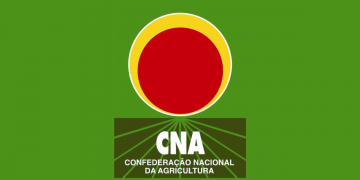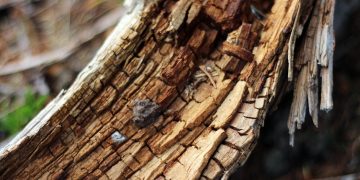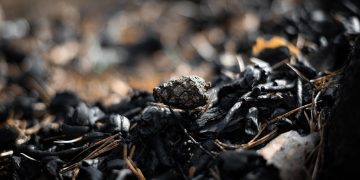After growing frustrated with legislative inaction, biotechnology students in Uganda have started an initiative to advocate for biotechnology, gene editing and the passage of a biosafety law.
The Biotechnology Online Series features students and researchers using Zoom and other social media channels to discuss how biotechnology and newer tools such as CRISPR-Cas9 and genetic engineering could improve the country’s food production and quality of life.
Perez Mweine, third-year student and president of the Makerere University Biotechnology Society, said the learners started the initiative to “create a whole new awareness” about biotechnology and what it can do to advance society.
“There is a lot of ignorance and false information surrounding biotechnology in our society,” said the student leader. “Many people here think biotechnology is the same thing as GMOs and are resisting it. But biotechnology goes beyond GMOs and includes many other aspects, such as bioinformatics and other industrial technologies.”
Mweine said the initiative seeks to engage the public to dispel “all this misinformation” surrounding biotechnology in Uganda and promote the science.
The Makerere University Biotechnology Society comprises more than 150 students who are studying biotechnology or related programs, such as physical sciences and conservation biology, at the institution of higher learning.
It started in 2016 primarily to promote the discipline and link biotechnology students with research organizations, such as the National Crops Resources Research Institute (NaCRRI) in Uganda, to facilitate their transition from lecture rooms to work environments.
But leaders of the society started the online initiative in June this year to extend their reach beyond biotechnology students and out to the public to make more people aware of the science and re-start conversations about the country’s need for biosafety laws.
“Our aim is to bring science and scientific topical discussions closer to young scientists, both at Makerere (University) and at other external communities,” Mweine said. “The initiative seeks to interact with the common person so more people here can understand that science and biotechnology are not dangerous after all but are instead very important.”
The discussions are tailored to demonstrate how biotechnology can solve more of society’s challenges related to climate change, diseases and pests, food insecurity, and other issues, he said.
The students have held 10 sessions since June and discussed the status of biotechnology in Uganda, existing gaps in knowledge and regulation and how the country could harness the potential of science.
The students have hosted various biotechnology advocates, including Dr. Elioda Tumwesigye, Uganda’s former minister for science, technology and innovations, who explained the benefits that biotechnology could bring and dispelled many myths surrounding it.
“The challenge is that many people here have narrowed biotechnology to just GMOs and food,” said Joanita Nangobi, who is also a third-year biotechnology student at Makerere University. “When a discussion starts, people are quick to associate it with genetically modified crops and dismiss it.”
But despite the preconceptions and misperceptions they face, the students shall not relent in their advocacy.
“Apart from the online series, we want get out to the communities, engage mainstream media, talk science, so people and policy makers can appreciate science and what these newer technologies can do to improve society,” Nangobi said.
“We basically want to amplify the correct information about biotechnology and how it could offer solutions not only in agriculture but also in environmental conservation, industry and other biomedical sectors,” she said.
The students have also petitioned Ugandan parliament speaker Jacob L. Oulanyah to retable a biosafety bill, which would guide usage of biotechnology in the country.
Uganda’s previous parliament passed a “genetic engineering regulatory bill” to govern usage of newer technologies, first in 2017 and again in 2018. But President Yoweri Museveni returned the bill to the house on both occasions.
Since then, the new parliament hasn’t made any satisfactory attempt to retable the bill, which is causing a “devastating effect” on researchers and biotechnology students in the country.
Ugandan scientists have developed a number of higher yielding and disease-resistant crop varieties, but they cannot extend their innovations to the farmers because of the legislative inaction in the sector.
Others have had to shelve their research.
As for the students, they fear the continued delay to enact a law that can regulate their sector threatens will make their program obsolete.
“Makerere University is the only institution of higher learning in Uganda that offers biotechnology at undergraduate level,” says the petition. “But there is inference that the university would scrap the course due to lack of regulations and legal protection in the field, which would cause severe detriment to the entire structure of biotechnology in Uganda.”
“The lack of legal protection is encouraging a lot of brain drain,” Mweine said. “More researchers who want to advance their innovations out of the labs and confined field trials have to first leave the country. We cannot continue like this.
“I am in my final year,” he continued. “I don’t want to complete school and I cannot practice because we lack legislation that can guide usage of biotechnology.”
But Nangobi said Uganda would enact a biosafety law if more people can understand that biotechnology extends beyond GMOs and food.
“If we can demonstrate to society that biotechnology is broader than GMOs and that can be very beneficial to humanity and its survival in more ways, we stand a chance to have this law,” she said.
Many people hold the view that biotechnology is limited to GMOs and food in part because “our advocacy for a biosafety law has largely been driven by agricultural researchers,” she said. But people’s outlook of the newer technologies would change with a “collective” advocacy.
“With a new parliament comes another opportunity to have this biosafety law,” Nangobi said. “We just have to show the legislators and the president that biotechnology can actually play a big role in the development of this country.
“When people realize that biotechnology is broader than GMOs and understand that it is pro-health, pro-food security, and many other things, that should be enough,” she added.
Nangobi called for a collective constituency including researchers in environment conservation, pharmaceuticals and other industries, which can advocate for these new technologies.
Tumwesigye said Uganda can’t afford to be left behind in this “biotechnology revolution” and called the country to enact a biosafety law.
“Most of these COVID-19 vaccines we are talking about, researchers have been able to develop them using biotechnology,” Tumwesigye said. “Most of the medicines we take, it is biotechnology. We need a biosafety law like yesterday.”























































Discussão sobre este post